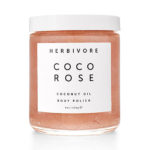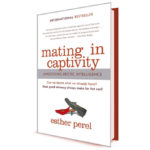Please welcome Dr. Joe to our site! Once a month, Dr. Joe DeOrio, a urologist in Chicago, will be answering your questions on male sexual health. To ask him your own question, click here.
Dear Dr. Joe,
To circumcise or not to circumcise — what’s your medical take on the matter?
— Parent-to-Be
Dear PTB,
To snip or not to snip? That is the question. And, oh, what a question it is. While this is not the most difficult topic to discuss with a parent, it is one heck of a controversial topic to debate on the internet. There is an overwhelming abundance of information on the web, and like all information on the net, it’s confusing and difficult to navigate. Just googling circumcision returns over 11 million results. Is there a right answer? Well, I guess that depends on your point of view.
Circumcision started as a religious practice, well-known today in Jewish and Muslim culture, but it also occurred ritually in ancient Egypt and in many other cultures all over the world. In the United States, doctors began performing circumcisions as a way to discourage young boys from masturbating (it’s true!). Though its roots remain religious and cultural, the medical community has found health benefits to circumcision, thus justifying its non-religious practice. These proven health benefits, however, are not overly dramatic when you actually look at absolute improvements. For example, a 10-fold decrease in urinary tract infections seems pretty impressive, but you’d have to circumcise 100 boys to prevent just 1 infection.
If you believe that circumcision is proper from a religious or cultural viewpoint, far be it from me, or any doctor, to tell you differently. It is a relatively simple procedure, and has a very low complication rate. Complications, when they do occur, are almost always minor, and soon to resolve. Can bad things happen? Sure. Bad things can happen during any medical procedure, no matter how minor. Avoiding risk, however, is not always a strong argument against action. Fact is, bad things happen everywhere in life, yet we take the risk of living. And for those that refer to the procedure as “mutilation,” I can understand your argument, but it is nonetheless an accepted practice within our culture, just like body piercing and tattoos.
So let’s get to the skin of the matter, the medical pros and cons, so to speak. On the pro side, circumcision does decrease the risk for urinary tract infections in the newborn male (10-fold in the first 3-6 months of age), as well as decrease the risk for HIV transmission in the sexually active adult (>50% in men studied in sub-Saharan Africa). Circumcision has also been shown to decrease the risk for penile cancer. This finding, however, is likely more closely related to improved penile hygiene after foreskin removal. Finally, it also eliminates potential future problems arising from the foreskin itself, such as phimosis, which is scarring of the foreskin preventing retraction.
On the downside, there certainly are risks for complications. These range from bleeding (sometimes severe) and infection at the time of the procedure, to long-term cosmetic issues, such as skin bridging and buried penis. Complications also include very rare, though downright catastrophic events such as penile amputation, sometimes requiring gender reassignment. This outcome, however, is outrageously rare. And I’ve heard all the stuff about decreased sensitivity or sex drive after a circumcision. Truth is, there is just no good data on that front. It’s all anecdotal (the few studies that were done were poorly designed), and for every guy who tells you that his aardvark is the cat’s meow, I’ll find you a cut guy that swears his little fella is the best.
So, what to do? To snip or not to snip? I really can’t answer that for you. And that is the answer that I give my patients as well. Circumcision is an individual choice, tied to health, religious, and cultural viewpoints. Think circumcision is right for religious reasons? Go ahead, knowing that the procedure is low risk. Planning a circumcision because of cultural influences? Snip away, as there is arguably a benefit to looking like Dad, your brothers, or your peers. Completely against circumcision? No problem, the health benefits are not overly compelling. Weigh the pros and cons, and just do for your child what you think is best. In all honesty, he’ll likely be quite happy with his “little partner” either way.
— Dr. Joe

Dr. Joe earned his undergraduate degree in Molecular Biology from Princeton University. After attending the Loyola University Stritch School of Medicine, he completed his residency training in urological surgery at the Los Angeles County Medical Center. He lives and works in Chicago, IL. Keep an eye out for his upcoming blog at docjoe.net.


















He said it: “Circumcision is an individual choice, tied to health, religious, and cultural viewpoints.”
If it is the individual’s choice then why does he say it is the parent’s decision?
The baby boy is the individual getting the hoodectomy not the parents. Why should the parents be deciding this before the boy grows up?
Despite a few problems, this article is relatively good, in my opinion
However, the final statement:
“In all honesty, he’ll likely be quite happy with his “little partner” either way”
Is inaccurate. There are MANY MANY people who were cut and resent it, including me. The probability of this according to my research is around 38%, which is very significant.
Of course a Urology surgeon isn’t going to say NO to circumcision. He gets paid to do them, repair them, etc. He would of course not defend a defenseless infant boy to not have his penis mutilated by his parents. He wouldn’t have a job if penises didn’t need surgery.